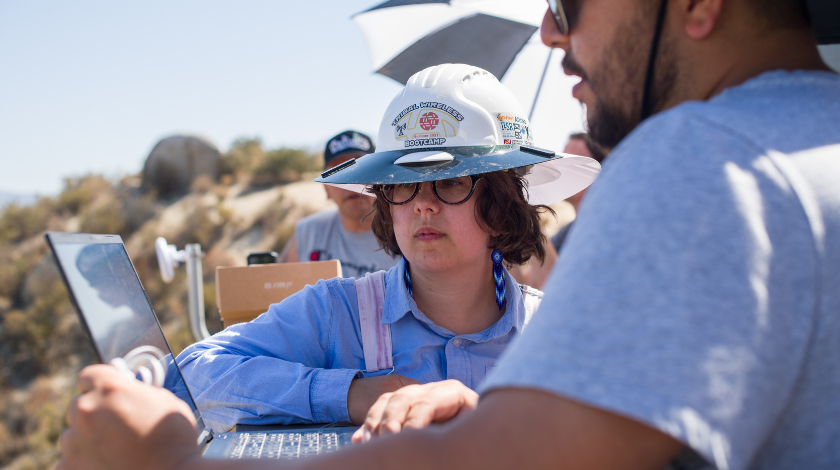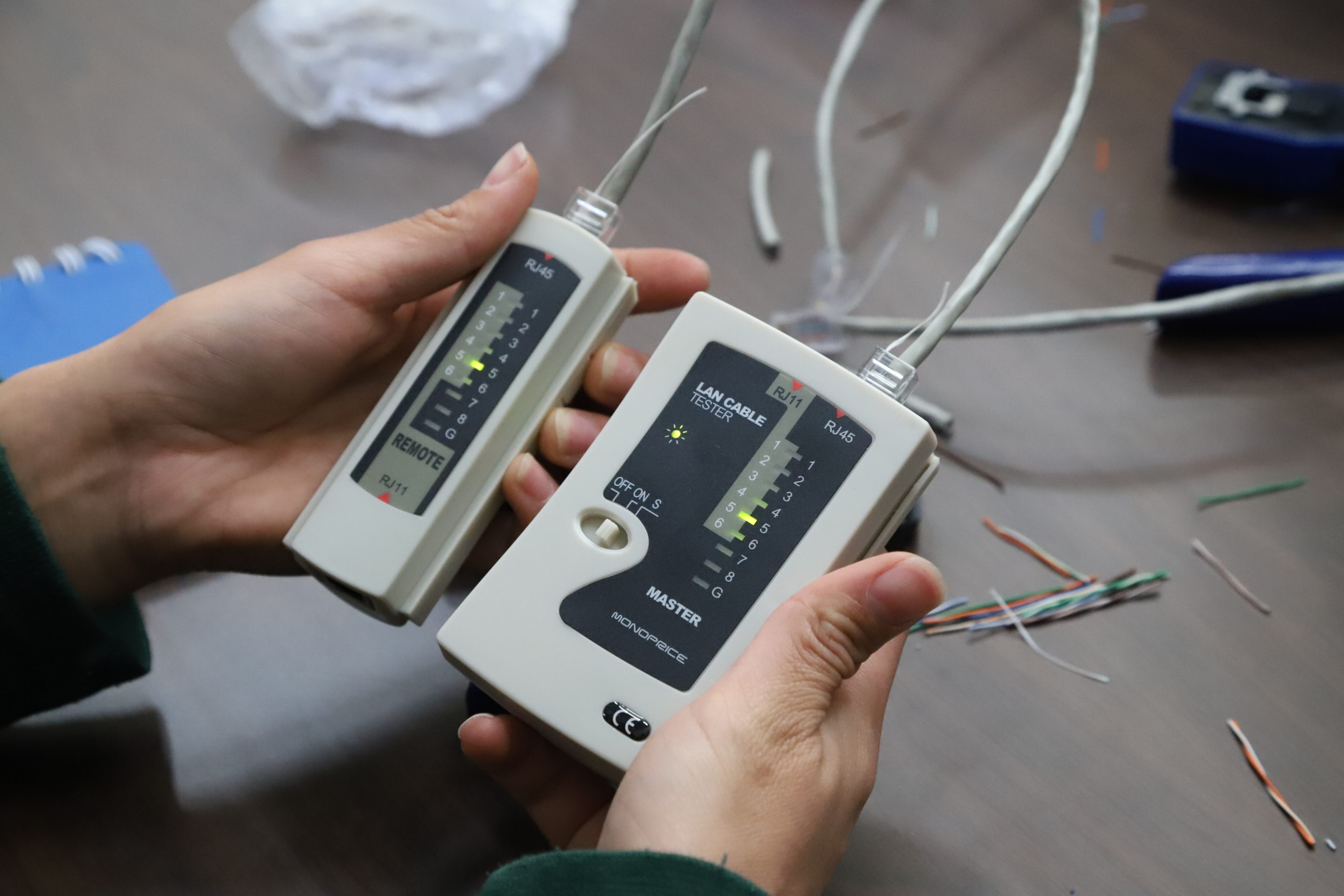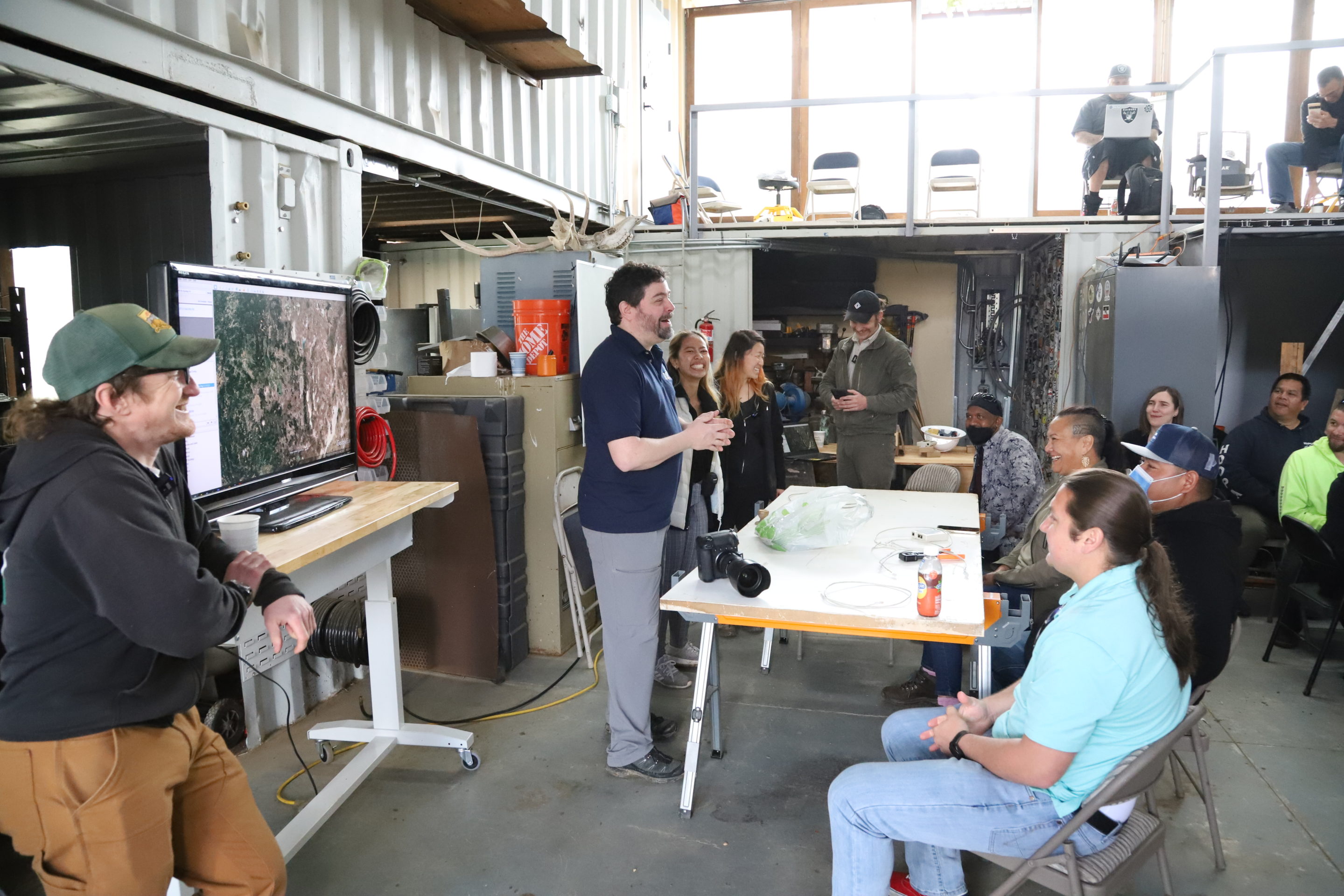Digital Equity in Tribal Communities Project
Tribal Broadband Bootcamp: Fostering Digital Sovereignty in Tribal Communities
The Michelson 20MM Foundation is proud to launch the Digital Equity in Tribal Communities Project, a new multi-year effort to address digital inequity in indigenous communities. This project looks to empower tribal nations with the knowledge, tools, and means necessary to access the internet and the opportunities that come with it. We aim to center the voices, expertise, and wisdom of tribal leaders in our efforts because the solutions for the challenges faced by the community must come from those most knowledgeable of the community’s needs.
In partnership with the Institute for Local Self Reliance (ISLR), we have created this series to provide tribal communities with resources to establish and maintain broadband networks and help their communities connect to the economic, health, education, and civic engagement opportunities to thrive. These bootcamps align with the Michelson 20MM Foundation’s philosophy of affecting catalytic change and centering community as the foundation for that change. The convenings foster digital sovereignty and center tribal communities as the source for solutions to digital inequity on tribal lands; to date, ILSR has organized five Tribal Broadband Bootcamp events in three states, working with nearly 40 Tribes and engaging more than 150 attendees.
We look forward to partnering on future tribal broadband bootcamps and furthering our support of thriving, diverse, and equitable tribal communities.
Recent News
Broadband of the People, by the People, and for the People
At a ranch in Temecula, California, tribal leaders from throughout the state met to discuss how to establish and maintain their own broadband networks with the ultimate goal of connecting their communities to the internet.
In Tribal Nations, Broadband is More Than Just Internet. It’s a Pathway to a Better Life
The Yurok Tribe in Northern California is the state’s largest Native American tribe in terms of both population and land.
At the top of a mountain on the reservation is a spot known today as Telephone Tree. Why? Because it is the only place with enough cell reception to read and send text messages. Still, though, not enough to make a call.
Don’t even ask about broadband access. There is none. When the pandemic hit, the tribe had to contend with its lack of connectivity during a time when society was largely shifting to online only.
Tribal Broadband Bootcamps Bring Broadband Solutions to Indian Country
An effort to foster digital sovereignty and support tribal citizens to build and operate their own broadband networks in Indian Country is gaining momentum.
Responding to the challenges of COVID and the opportunities created by the federal attention and investment into tribal broadband, our own Christopher Mitchell, Director of the Community Broadband Initiative at the Institute for Local Self-Reliance, prominent Tribal broadband advocate and 20-year veteran behind the Tribal Digital Village, Matt Rantanen – along with a loose coalition of public interest tech people – have organized a series of trainings to help tribes tackle building and running networks for themselves.


